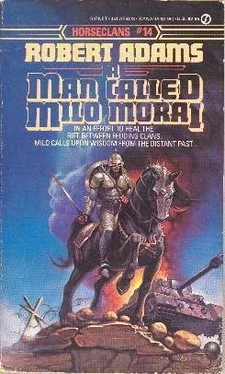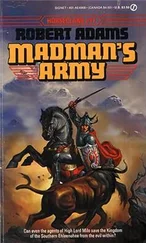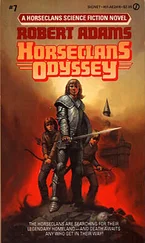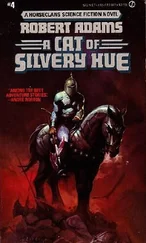Robert Adams - A Man Called Milo Morai
Здесь есть возможность читать онлайн «Robert Adams - A Man Called Milo Morai» весь текст электронной книги совершенно бесплатно (целиком полную версию без сокращений). В некоторых случаях можно слушать аудио, скачать через торрент в формате fb2 и присутствует краткое содержание. Жанр: Фантастика и фэнтези, на английском языке. Описание произведения, (предисловие) а так же отзывы посетителей доступны на портале библиотеки ЛибКат.
- Название:A Man Called Milo Morai
- Автор:
- Жанр:
- Год:неизвестен
- ISBN:нет данных
- Рейтинг книги:3 / 5. Голосов: 1
-
Избранное:Добавить в избранное
- Отзывы:
-
Ваша оценка:
- 60
- 1
- 2
- 3
- 4
- 5
A Man Called Milo Morai: краткое содержание, описание и аннотация
Предлагаем к чтению аннотацию, описание, краткое содержание или предисловие (зависит от того, что написал сам автор книги «A Man Called Milo Morai»). Если вы не нашли необходимую информацию о книге — напишите в комментариях, мы постараемся отыскать её.
A Man Called Milo Morai — читать онлайн бесплатно полную книгу (весь текст) целиком
Ниже представлен текст книги, разбитый по страницам. Система сохранения места последней прочитанной страницы, позволяет с удобством читать онлайн бесплатно книгу «A Man Called Milo Morai», без необходимости каждый раз заново искать на чём Вы остановились. Поставьте закладку, и сможете в любой момент перейти на страницу, на которой закончили чтение.
Интервал:
Закладка:
He made no sound either, lying in perfect stillness, though wound wire-taut, his body flooded with adrenaline, his eyes slitted so that to a casual glance they might look closed in slumber, yet straining through the slitted openings to discern just who or what this unannounced and unexpected visitor might be. Unable to longer go without air, he took several slow, measured breaths, striving to make them sound as regular as possible.
Something touched the side of his mattress ever so gently, he heard a sharp intake of a deep, deep breath, and then …
Irunn was upon him. She kissed blindly at his face until she finally found his mouth and glued her own wet, hot one to his. His first, instinctive effort to push the rather heavy woman off him revealed to his fingers and hands the bare fact that she was nude.
What happened after that was thoroughly instinctive, the mere course of nature. When he awakened the second time, however, in the bright light of morning, Irunn was gone from his arms, his bed, his room, and she had already left for the hospital’s day shift when he dressed and came downstairs for breakfast.
The same thing happened on Tuesday night. On Wednesday night, he locked his door, but either Pat O’Shea was in collusion with Irunn or, more likely, felt Milo, her room key worked as easily as did his own in the simple old-fashioned spring locks with which the doors were fitted. On the Thursday, he considered wedging the back of a chair under the doorknob, but then mentally shrugged and gave up trying to fight her and her amorous nighttime forrays. After all, he enjoyed sex, he had discovered, just as much as she obviously did, and to create any sort of a noisy ruckus in the O’Shea house would likely get them both expelled from it on moral grounds, for friends or no, Pat and Maggie could do nothing else were they to maintain a necessary sense of respectability for the house and the other boarders. At least that was how he rationalized his continued enjoyment of the forbidden fruit with which Irunn was so generously serving him each night.
If anyone in the house did hear nighttime noises, they attended to their own business, and in any case, Maggie O’Shea and her daughters returned after an absence of two weeks and, with her again in the house of nights, Irunn ceased her after-dark activities with Milo and recommenced the night shift at the hospital.
She also recommenced harassing Milo about making a trip with her to Wisconsin, and he, perforce, recommenced his near-lies and evasive actions.
One thing about which he had no need to lie was the press of his work, for on the 28th of September, Germany had been given the bulk of what had been, prior to the Great War, Prussian Silesia, and the European press was full of this nearly unprecedented action and speculated frequently and at great length upon its possible consequences. Because of these events, Milo and the rest of the translators were terribly overworked. He now was burdened with assignments two and three times each week—being given more every two or three days than he formerly had received for an entire week—and he was working all day, every day, and generally long into the nights, as well. The sole good thing about it was the money. He now was earning as much as twenty-five to thirty-five dollars a week, and despite board and room, laundry, outside lunches when he could find the time and remembered to eat, toiletries and odds and ends of clothing, he still was adding substantially each week to the contents of his strong box.
It went on and on and on. The work did not abate, nor did Irunn’s increasingly urgent demands that he meet her family in Wisconsin. Then, overnight and inexplicably, she again became all sweetness and light, seemingly having forgotten her demands that Milo go north with her immediately if not sooner. He was relieved, in a way, though he still felt the nagging notion that it was not over, that the willful woman had not really given up on him, but simply had changed her mode and direction of attack.
He came back to the O’Shea house after the library closed of a night in mid-October to be met by Pat. “Milo, Irunn, she had to take off for her home place in Wisconsin real sudden-like and she left thishere for you.” He proffered a sealed plain white envelope.
“Milo, my own love,” the note inside read, “My brother, Sven, has been taken suddenly ill, and I have gone up to be of assistance to my mother and sisters. I will be gone one week, no more, I hope. A claim ticket is enclosed. It is for a ring on which I have made the deposit and it is being made bigger for me by the shopkeeper. Please to pick it up for me on next Monday and pay the man the rest of the money for it and I will pay you back when I come back to Chicago. With all my undying love, Your Irunn. (P.S. Please burn this note for no one but you must read it. I.)”
When Milo went downtown to the jewelry-pawnshop of a Mr. Plotkin, he was impressed by Irunn’s taste. The ring was stunning, a full carat, at least, of blue-white diamond in a setting of reddish gold, antique European, or so the jeweler, Plotkin, averred. He knew Milo’s name, and Milo assumed that Irunn must have telephoned him before she left for home. Back at the boardinghouse, he deposited the ring in its velvet box in his strongbox and got back to work on his translations. But something told him not to burn Irunn’s note. That too went into the steel lockbox and the time was soon to come when he would be glad that he had heeded his feeling.
Things began to close in on him even before Irunn’s return. First was a letter that was awaiting him when he returned to the O’Shea house one night. The postmark was a Wisconsin one, but the handwriting was not Irunn’s. The writer had been a man and, from the style of the letters and numbers, a man of European education.
“My dear Herr Moray, Our Irunn has told me of your many languages, so I pen this in my native Norwegian. This is a very good thing, for although I speak and read English well enough, I never have been able to well express my thoughts in its written version, and it is very necessary that I fully express myself in this letter.
“For all that no one of us has met or even seen you, we know much of you from your letter and from our Irunn. She has made your excuses for not coming to our farm to properly ask her hand according to ancient custom, and it is true, as you so well wrote, this is a new country with new customs and we older ones must learn to live by the ways of our new land, forgetting many of the old ways of Norway.
“Irunn has spoken well and often of you, of your goodness, your gentleness, your strength and your bravery in facing and defeating the evil man with the knife. She has spoken, too, of how long and hard you work at your job and of how very much money it pays you. To make even a decent income is, I well know, no easy task in the best of times, and these are not the best of times.
“Therefore, here is your answer, my son. I will be most pleased to give you the hand of my fine daughter, Irunn, in the bonds of holy, Christian wedlock, forgoing the meeting of your person until your so-important work allows you leave to visit me at my steading. Thor Kris-tiansson.”
Milo’s second shock came the very next day in the person of a youngster who sought him out at his library table and gave him a rich-looking, parchment-bond envelope containing on heavy, embossed stationery a request to immediately come to the residence of one Father Alfonse Rüstung beside Saint Germanus’ Church. After a brisk half-hour walk, Milo arrived and was greeted at the door by a young, rather effeminate-looking man wearing a cassock who bade him be seated in a fair-sized, well-furnished room.
The man who presently entered was also wearing a cassock, but there was nothing effeminate about him; his face looked to be roughly carven out of craggy granite, and his handshake indicated crushing strength. He looked to be of late-middle years, his hair was sparse and receding, his hands were big and square and thickly furred with dark-blond hairs.
Читать дальшеИнтервал:
Закладка:
Похожие книги на «A Man Called Milo Morai»
Представляем Вашему вниманию похожие книги на «A Man Called Milo Morai» списком для выбора. Мы отобрали схожую по названию и смыслу литературу в надежде предоставить читателям больше вариантов отыскать новые, интересные, ещё непрочитанные произведения.
Обсуждение, отзывы о книге «A Man Called Milo Morai» и просто собственные мнения читателей. Оставьте ваши комментарии, напишите, что Вы думаете о произведении, его смысле или главных героях. Укажите что конкретно понравилось, а что нет, и почему Вы так считаете.












